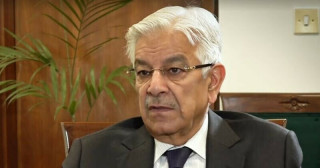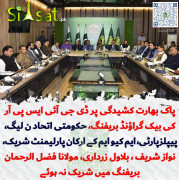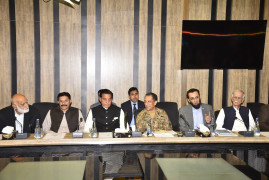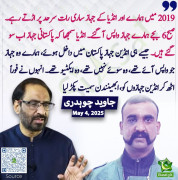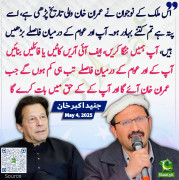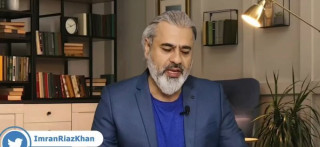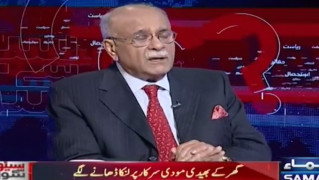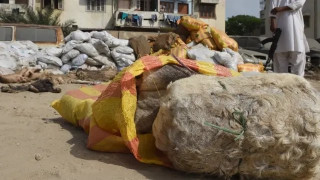HORUS
Chief Minister (5k+ posts)
THE POLICEWOMEN OF PESHAWAR
When Asmat Ara joined Khyber Pakhtunkhwa’s (KPK) police force, in northwestern Pakistan two decades ago, her career prospects were bleak.
“There was no concept of progress; there was no light at the end of the tunnel. All the time, I just thought that I want to leave the police,” she says as she cruises along Peshawar’s busy ring road, blue lights flashing on her police patrol car.
Back then, the force’s few female officers faced many difficulties. From getting access to training, to being provided with proper accommodation, they had to fight to be taken seriously and be treated as equals.

"We decided to struggle and push forward,” says Asmat. “We slowly started working, got our training, and told them we have the capability to do the job.”
Today, she has reached the rank of deputy superintendent in Peshawar’s traffic police and says there has been a significant change in attitudes towards female officers. Part of her work now involves training other officers, both male and female, in investigative skills.
But attitudes on the street have taken longer to shift. The sight of a female officer behind the wheel of a police car still attracts curious stares.
"The environment in KPK is such that women don’t leave their homes a lot. When we go out on patrol, it’s a new concept for the public here.”
And that environment, teamed with a predominantly male police force, also makes it difficult for female victims of crime to come forward.
With support from NGOs and KPK's provincial government, there has been a drive to recruit and train more female officers over the last few years. There are now more than 600 in the province working in various roles - from detectives to machinegun-wielding police commandos.
"The environment in KPK is such that women don’t leave their homes a lot. When we go out on patrol, it’s a new concept for the public here.”
And that environment, teamed with a predominantly male police force, also makes it difficult for female victims of crime to come forward.
With support from NGOs and KPK's provincial government, there has been a drive to recruit and train more female officers over the last few years. There are now more than 600 in the province working in various roles - from detectives to machinegun-wielding police commandos.

Perhaps the biggest difference on the ground has been an initiative to set up ‘women’s desks’ in police stations. Operated by female officers, these counters provide better access to justice for female victims of crime. According to development consultancy Coffey International, the five stations where the pilot project has operated have seen a 67 percent rise in the reporting of crime by women since 2013. The provincial government has since pledged to expand the initiative to the rest of KPK.
"There's been a change. Women have realised that female officers are present and that the system can work for them now,” says Asmat.
She is much happier today than she was when she first joined the force 20 years ago but feels there’s still a lot of progress to be made. In total, women account for less than one percent of Pakistan’s police force.
Asmat hopes the next generation will build on the progress made by this current crop of female officers.
"My little niece copies me and keeps all my news clippings. When anyone asks her what she wants to become when she’s older, she says: ‘I want to be a police officer, just like my aunt.’”
http://interactive.aljazeera.com/aje/shorts/pakistani-police-women-peshawar/
When Asmat Ara joined Khyber Pakhtunkhwa’s (KPK) police force, in northwestern Pakistan two decades ago, her career prospects were bleak.
“There was no concept of progress; there was no light at the end of the tunnel. All the time, I just thought that I want to leave the police,” she says as she cruises along Peshawar’s busy ring road, blue lights flashing on her police patrol car.
Back then, the force’s few female officers faced many difficulties. From getting access to training, to being provided with proper accommodation, they had to fight to be taken seriously and be treated as equals.

"We decided to struggle and push forward,” says Asmat. “We slowly started working, got our training, and told them we have the capability to do the job.”
Today, she has reached the rank of deputy superintendent in Peshawar’s traffic police and says there has been a significant change in attitudes towards female officers. Part of her work now involves training other officers, both male and female, in investigative skills.
But attitudes on the street have taken longer to shift. The sight of a female officer behind the wheel of a police car still attracts curious stares.
"The environment in KPK is such that women don’t leave their homes a lot. When we go out on patrol, it’s a new concept for the public here.”
With support from NGOs and KPK's provincial government, there has been a drive to recruit and train more female officers over the last few years. There are now more than 600 in the province working in various roles - from detectives to machinegun-wielding police commandos.
"The environment in KPK is such that women don’t leave their homes a lot. When we go out on patrol, it’s a new concept for the public here.”
And that environment, teamed with a predominantly male police force, also makes it difficult for female victims of crime to come forward.
With support from NGOs and KPK's provincial government, there has been a drive to recruit and train more female officers over the last few years. There are now more than 600 in the province working in various roles - from detectives to machinegun-wielding police commandos.

Perhaps the biggest difference on the ground has been an initiative to set up ‘women’s desks’ in police stations. Operated by female officers, these counters provide better access to justice for female victims of crime. According to development consultancy Coffey International, the five stations where the pilot project has operated have seen a 67 percent rise in the reporting of crime by women since 2013. The provincial government has since pledged to expand the initiative to the rest of KPK.
"There's been a change. Women have realised that female officers are present and that the system can work for them now,” says Asmat.
She is much happier today than she was when she first joined the force 20 years ago but feels there’s still a lot of progress to be made. In total, women account for less than one percent of Pakistan’s police force.
Asmat hopes the next generation will build on the progress made by this current crop of female officers.
"My little niece copies me and keeps all my news clippings. When anyone asks her what she wants to become when she’s older, she says: ‘I want to be a police officer, just like my aunt.’”
http://interactive.aljazeera.com/aje/shorts/pakistani-police-women-peshawar/
Last edited by a moderator:


